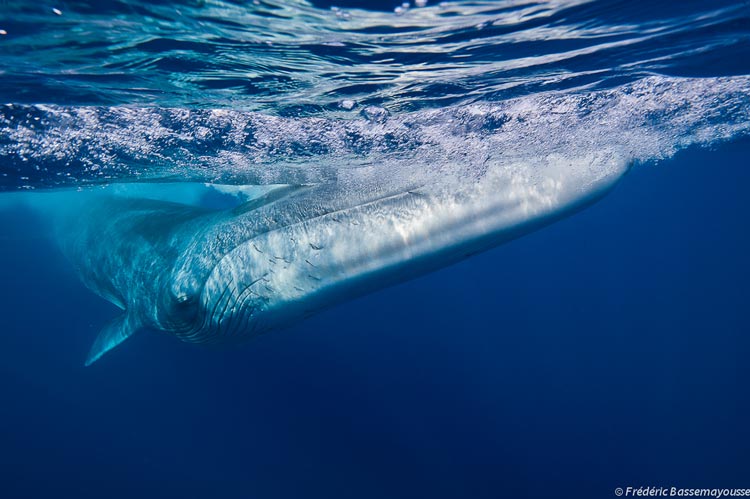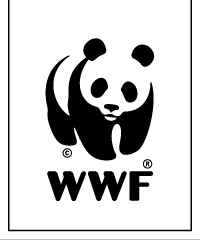FIN WHALES

© Frédéric Bassemayouse
The Life of the Fin Whale
How many of us know that the second largest animal and fastest whale species in the world lives in the Greek sea? The fin whale (Balaenoptera physalus) is the kind and agile dweller of the Mediterranean, swimming with a speed of up to 37 km/h.
With a heart the size of a small car, a length of up to 23 meters, a weight of up to 75 tons and a life expectancy of 100 years, the imposing fin whale is the only whale that has a steady presence in Greek waters.
Fin whales are grey (dark or light) with white undersides. They are distinguished by their fairly protruding blowhole with two separate symmetrical nostrils. Their spout is vertical and goes up to 6 meters high, making it visible from over 2 nautical miles away.
They feed on krill, a species of zooplankton that looks like tiny shrimp. Like all whales, the fin whale alternates between breeding and feeding seasons. However, unlike whales around the world, Mediterranean fin whales remain in the Mediterranean throughout the year. During the months of summer, they are found feeding in the Ligurian
Sea (between Italy and France).
We do not have precise data about their population in Greece. What we know is that they are regularly spotted off-shore in the Ionian Sea, though occasionally they also approach the coasts.
Life under Threat
The greatest threat to fin whales is the collision with vessels, which can even lead to their death. Greece is a nodal point in the Mediterranean Sea. The latter carries 30% of the global maritime traffic, though it only covers 0.8% of the global ocean surface. As a result, the noise generated by large ships traveling through areas important to cetaceans and emitted 24 hours a day affects and threatens marine mammals in multiple ways.
Oil pollution, harassment by recreational vessels, noise pollution, climate change, disturbance, military drills, and the search for hydrocarbons are threats common to all marine mammals.
The Life We Protect
Since 2010, WWF Greece and MOm/ The Hellenic Society for the Study and Protection of the Monk Seal have been carrying out the European program Thalassa: Learn, Act, Protect in cooperation with the Pelagos Cetacean Research Institute and the Tethys Research Institute. It is the first awareness and participation campaign to be carried out in Greece about the 14 marine mammals, 9 resident and 5 occasional (dolphins, whales and the monk seal), that live in the Greek seas.
The campaign’s objective is to inform the public about these animals, the threats they face and their importance to the marine environment and to offer simple advice on ways to contribute to their conservation through a variety of communication tools. In addition, the campaign aims at raising awareness among pupils – tomorrow’s citizens – and engaging the parties that are professionally related to the marine environment. As part of the campaign, a series of educational activities was carried out in directly involved institutions, such as the Coast Guard, local government and merchant marine and naval academies, as well as in schools throughout Greece.
Τhe European project “Thalassa Campaign: Learn, Act, Protect/Awareness, Educational and Participation Campaign for Marine Mammals in Greece” was implemented by MOm/The Hellenic Society for the Study and Protection of the Mediterranean Monk Seal and WWF Greece together with Cetacean Research Institute Pelagos and Tethys Research Institute, with the contribution of LIFE financial instrument of the European Union, the Stavros Niarchos Foundation, Blue Planet Shipping SA and the Green Fund.
Share this





